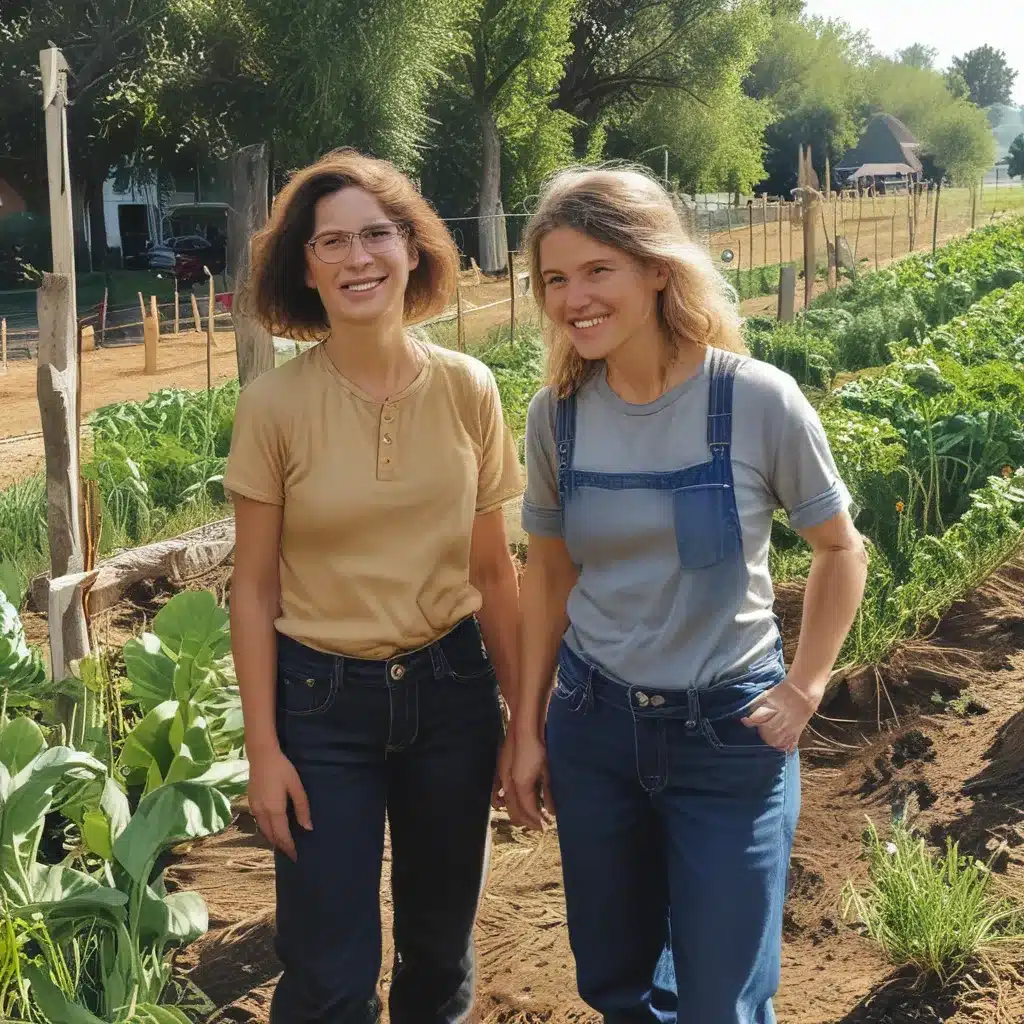
The Unexpected Gifts of a Changing Climate
I’ll never forget the day I first visited Thornapple CSA, nestled in the rolling hills of central Kentucky. As I pulled up the gravel driveway, the air was thick with the scent of freshly turned earth and the symphony of birdsong. Greeted by the warm smiles of the farmers, I felt an immediate sense of belonging – like I had stumbled upon a hidden oasis, a place where time seemed to slow down and the worries of the outside world melted away.
In the years since, I’ve returned to Thornapple time and time again, each visit offering new insights into the magic that happens when a community comes together around the shared values of sustainable agriculture. While the challenges of climate change loom large, the resilience and ingenuity I’ve witnessed on this farm have convinced me that organic farming holds the key to nurturing the connections we so desperately need to weather the storms ahead.
The Soil as Our Ally
As I walk the fields with farmer Sarah, she pauses to kneel down and gently run her fingers through the rich, loamy soil. “You know, this soil is our greatest ally in the fight against climate change,” she says, her eyes sparkling with pride. “By building soil health through practices like cover cropping and compost application, we’re not only improving our yields, but we’re also drawing down carbon from the atmosphere and locking it safely into the ground.”
The Kentucky nonprofit OAK (Organic Association of Kentucky) has been instrumental in supporting Thornapple’s soil-building efforts, providing technical assistance and incentive payments for the implementation of climate-smart practices. “The way I see it,” Sarah continues, “healthy soil is the foundation for everything else we do here. It’s what allows us to grow nutrient-dense food, nurture biodiversity, and create a truly resilient farming system.”
Indeed, the data speaks for itself. Research has shown that organic farms are better equipped to withstand the impacts of climate change, from extreme weather events to shifting pest and disease patterns. By prioritizing soil health, these farms are able to bounce back more quickly, maintaining productivity even in the face of adversity.
Building Community, One Crop at a Time
As we move through the fields, Sarah points out the diversity of crops – from the vibrant greens of the kale and chard, to the burgeoning heads of broccoli and cauliflower. “This is what I love most about organic farming,” she says with a smile. “It’s not just about growing food; it’s about nurturing a thriving ecosystem that supports all kinds of life.”
Indeed, the benefits of Thornapple’s organic practices extend far beyond the farm gates. Through the Thornapple CSA program, the farm is able to forge deep connections with the surrounding community, delivering fresh, nutrient-dense produce to members’ doorsteps while fostering a sense of shared responsibility for the land.
“When our members come to the farm for pick-ups or events, they get to see firsthand the hard work and love that goes into every crop,” Sarah explains. “It’s not just about the food – it’s about building relationships, understanding where our sustenance comes from, and feeling a part of something larger than ourselves.”
Farmer-to-Farmer Collaboration
But the community-building efforts at Thornapple don’t stop there. The farm is an active participant in the Kentucky Farm Share Coalition (KYFSC), a network of organic growers and CSA providers working to increase access to local, sustainable produce across the state.
“Being part of this network has been invaluable,” Sarah shares. “Not only do we get to learn from each other’s successes and challenges, but we also have the opportunity to collaborate on initiatives that benefit the entire community.”
One such initiative is the KYFSC’s annual Organic Farming Conference, which draws hundreds of farmers, researchers, and food system advocates from across the region. “It’s a chance for us to come together, share our stories, and get inspired by the incredible work happening all around us,” Sarah says. “It’s where we find the support and camaraderie we need to keep pushing forward, even in the face of adversity.”
Cultivating Resilience, One Connection at a Time
As our tour of the farm comes to an end, I can’t help but be struck by the profound sense of interconnectedness that permeates every aspect of Thornapple’s operations. From the soil to the crops, the farmers to the community, there is a tangible web of relationships that seems to sustain and nourish this place.
“You know, I often think about the ways in which organic farming is like a metaphor for the kind of world we want to create,” Sarah muses, her gaze sweeping across the verdant landscape. “It’s about understanding our interdependence, recognizing the value in diversity, and working together to build a more resilient and equitable future.”
Indeed, the lessons learned at Thornapple CSA are ones that extend far beyond the bounds of the farm. As the impacts of climate change continue to intensify, it will be these kinds of deep, community-rooted connections that will sustain us – not just as farmers, but as human beings striving to create a better world for ourselves and future generations.
So the next time you bite into a juicy tomato or savor the sweetness of a freshly picked strawberry, I encourage you to pause and reflect on the web of relationships that made that moment possible. For in the end, the true power of organic farming lies not in the crops themselves, but in the connections they help us cultivate – connections that will be our greatest asset in the challenging times that lie ahead.



